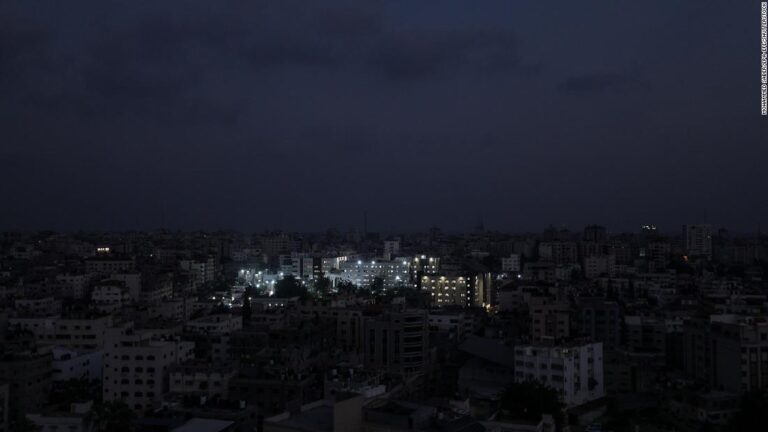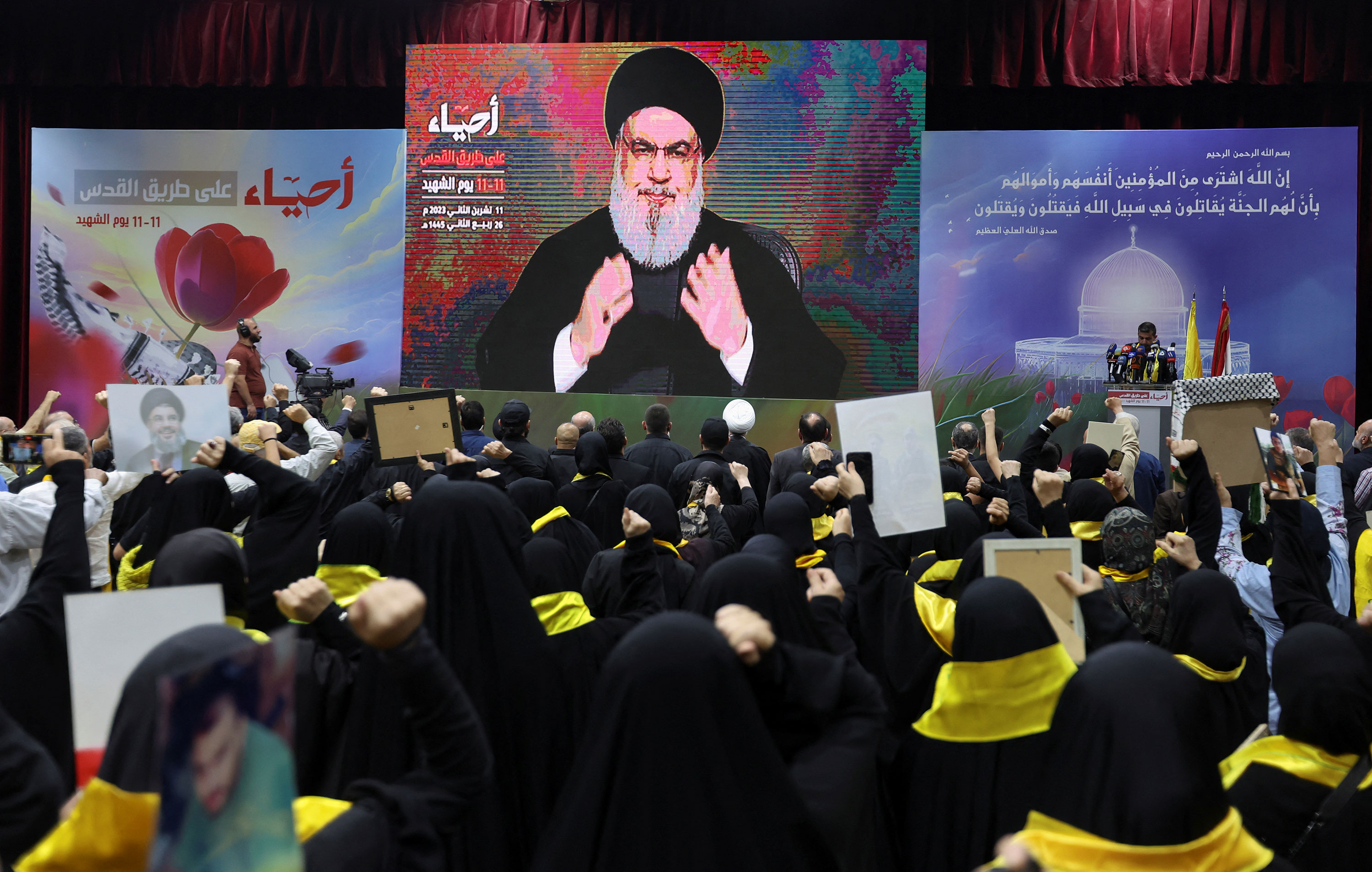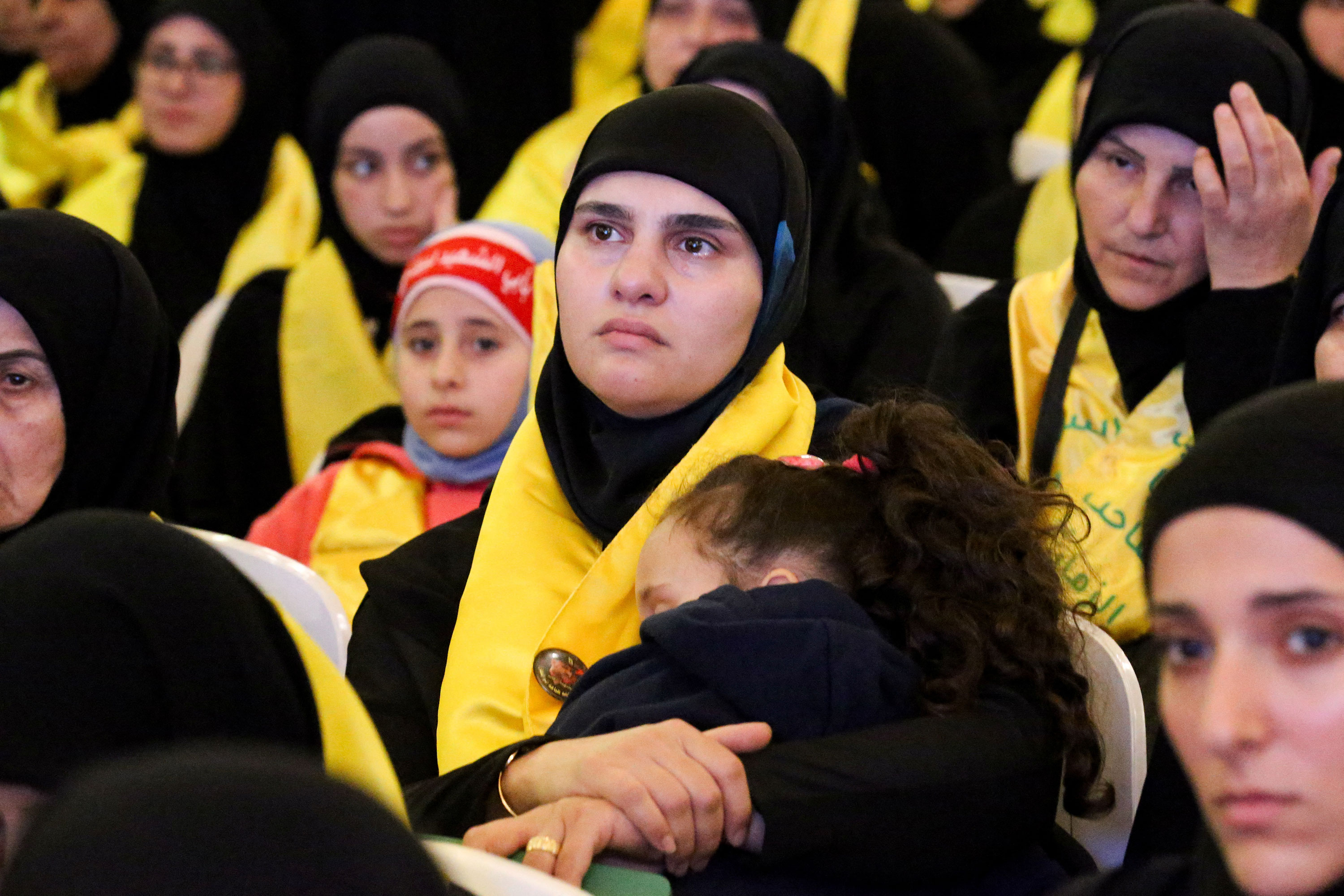
[ad_1]

Hezbollah Secretary General Hassan Nasrallah gave his second speech since the Hamas-Israel war started via video link from an undisclosed location Saturday, in which he addressed the situation in Gaza and clashes on the Lebanon-Israel border.
Nasrallah called the situation unfolding in Gaza “big, exceptional and dangerous in this region and the world,” adding that what will emerge from the death and destruction in Gaza “will be generation after generation of resistance fighters.”
“This painful event and these grave crimes are an expression of Israeli revenge. This is the spirit of a vicious revenge that have no moral or humanitarian or legal limits. It expresses the true nature of the entity (Israel),” he said.
“This isn’t just revenge, it’s not just lashing out. It is aggression with an objective. One of the main objectives is to impose submission, not just Gaza’s people, but also to grind the people of Palestine, Lebanon and the region to submission,” Nasrallah said.
On clashes at the Israel-Lebanon border: Hezbollah’s strikes on Israeli territory have increased in number and employed more advanced weaponry over the last week of cross-border fire between Israel Defense Forces and the powerful, Iran-backed armed group, Nasrallah said in a speech Saturday.
“In the last week, without a doubt, there was an elevation in resistance activities (on the border). Numerically and in the kinds of weapons that we used,” said Nasrallah.
Hezbollah has in recent days struck deeper into Israeli territory, Nasrallah said, marking an escalation in the month-long flareup, where the fighting has largely stuck to a 4-kilometer (about 2-mile) radius around the border.
He said Hezbollah used self-detonating, explosive-laden drones in an attack on Israeli positions for the first time in the paramilitary group’s history. (The Israeli military has acknowledged Hezbollah’s use of an attack drone in at least one of the strikes claimed by the Lebanese armed group.)

Hezbollah has, also for the first time, fired Iran-made Burkan missiles, which have a payload of up to 500 kilograms (about 1,100 pounds), on Israeli positions, Nasrallah said. Hezbollah this week released video showing a large explosion caused by a Burkan missile.
Nasrallah accused Israel of hiding its casualty figures from Hezbollah’s attacks on the border.
“The southern front in Lebanon will continue to be a front that applies pressure (on Israel),” he said.
On the US: Nasrallah accused the US of “administering” the Israeli operation in Gaza and chastised it for supporting the continuation of Israel’s operation in Gaza.
Nasrallah said “all pressure” to bring about a ceasefire should be directed toward the US. He praised militant actions against US positions in Iraq in recent weeks and said they would only “stop” if the US pushes for a ceasefire in Israel.
Hezbollah’s chief described Iran-backed armed groups in Iraq, Yemen, Lebanon and Syria as having created “supporting fronts” for Hamas in Gaza.
CNN reported earlier this month that the US intelligence community believes – for now – that Iran and its proxies are calibrating their response to Israel’s military intervention in Gaza to avoid direct conflict with Israel or the US while still exacting costs on its adversaries. But the US is also keenly aware that Iran does not maintain perfect control of its umbrella of proxies – in particular over Lebanese Hezbollah, the largest and most capable of the various groups. Hezbollah is an ally of Hamas, the group that attacked Israel on October 7, and has long positioned itself as fighting against Israel. US officials are deeply concerned that the group’s internal politics may cause Hezbollah to escalate simmering tensions.
Nasrallah’s speech last Friday: In his first public, in-person speech since 2006 — when a monthlong war erupted between Lebanon and Israel — Nasrallah said “all scenarios” are possible on the Lebanon-Israel border, warning Israel against further escalation of its operations there. He also urged for a ceasefire in Gaza, calling it Hezbollah’s first priority.
[ad_2]
Source link